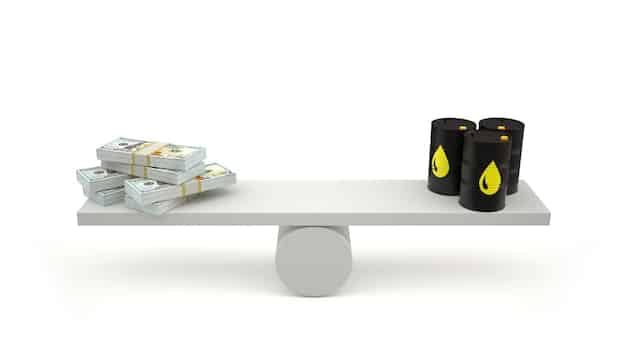Understanding Debt Settlement: Risks, Benefits & 2025 Alternatives

Understanding debt settlement in 2025 involves navigating its potential benefits, such as reducing debt, against risks like credit score damage, while exploring alternatives like debt management plans to make informed financial decisions.
Navigating the complexities of debt can be overwhelming. Understanding debt settlement: risks, benefits, and alternatives in 2025 is crucial for those struggling with overwhelming debt and seeking a fresh financial start. This guide provides insights into debt settlement, its potential advantages, and its inherent risks, along with exploring other viable options for debt relief.
What is Debt Settlement?
Debt settlement is a process where you negotiate with your creditors to pay off your debts for less than the full amount owed. This option is often considered by individuals facing significant financial hardship. Understanding the intricacies of debt settlement is crucial before making any decisions.
How Debt Settlement Works
Debt settlement typically involves halting payments to your creditors and instead saving money into a dedicated account. Once enough funds have accumulated, a settlement offer is made to each creditor, usually for a percentage of the total debt.
The Role of Debt Settlement Companies
Many individuals choose to work with debt settlement companies. These companies negotiate with creditors on your behalf, aiming to reduce your overall debt. However, it’s essential to research and select a reputable company to avoid scams and ensure effective negotiation.
- Negotiate with creditors to lower your debt.
- Save a lump sum of money to offer a settlement.
- Potentially reduce the overall amount you owe.
Debt settlement can offer a pathway to resolving overwhelming debt, but it’s not without its challenges. Understanding the process and potential outcomes is crucial for making an informed decision.
Benefits of Debt Settlement
Debt settlement can offer several potential advantages, especially for those struggling with unmanageable debt. However, it’s important to weigh these benefits against the risks involved.
Reduced Debt Amount
One of the primary benefits of debt settlement is the potential to significantly reduce the total amount of debt owed. Creditors may be willing to accept a lower payment to avoid the risk of receiving nothing if you declare bankruptcy.
A Path to Financial Freedom
Debt settlement can provide a clear path towards financial freedom by allowing you to resolve your debts in a more manageable way. Once the settlement is complete, you can begin rebuilding your credit and financial stability. But its important to note that you need a lot of discipline to save money during negotiating debt settlement.

- Opportunity to resolve debt for less than what is owed.
- Potential relief from overwhelming monthly payments.
- A chance to rebuild financial stability after settlement.
Debt settlement can be a beneficial solution for those facing severe financial challenges, offering a chance to regain control over their finances and work towards a debt-free future.
Risks and Drawbacks of Debt Settlement
While debt settlement offers the potential for debt relief, it’s crucial to be aware of the significant risks and drawbacks involved. These risks can impact your credit score, financial stability, and overall well-being.
Negative Impact on Credit Score
Debt settlement typically involves ceasing payments to creditors, which can result in significant damage to your credit score. Missed payments and accounts marked as “settled” can remain on your credit report for several years, affecting your ability to obtain loans or credit in the future.
Potential for Lawsuits
When you stop making payments, creditors may pursue legal action to recover the debt. This could result in lawsuits, wage garnishments, or other legal consequences. It’s important to understand your rights and responsibilities in such situations.
While negotiating debts can be challenging, it’s crucial to proceed cautiously and be aware of the potential pitfalls. Consulting with a financial advisor can help you navigate these complexities.

- Significant damage to your credit score.
- Potential for creditor lawsuits and legal action if you stop paying your debts..
- No guarantee that creditors will agree to a settlement.
Understanding these risks is essential before considering debt settlement. It’s important to explore all available options and make an informed decision that aligns with your financial goals and risk tolerance.
Debt Settlement vs. Debt Management Plans
Debt settlement and debt management plans (DMPs) are two distinct approaches to debt relief. Understanding the differences between these options is crucial for choosing the most suitable strategy for your individual circumstances.
Debt Management Plans (DMPs)
Debt management plans involve working with a credit counseling agency to consolidate your debts and negotiate lower interest rates with your creditors. You make a single monthly payment to the agency, which then distributes the funds to your creditors. A DMP is a more structured approach.
Key Differences
DMPs typically require you to repay the full amount of your debt, albeit at a lower interest rate, while debt settlement aims to reduce the total amount owed. DMPs also tend to have less of a negative impact on your credit score.
Choosing between debt settlement and a DMP depends on your financial situation, risk tolerance, and long-term goals. Both options can provide a path towards debt relief, but they involve different strategies and outcomes.
Alternatives to Debt Settlement
If you’re hesitant about debt settlement due to its risks, several alternative options may be worth considering. These alternatives offer different approaches to debt relief, each with its own set of advantages and disadvantages.
Credit Counseling
Seeking guidance from a credit counselor can provide valuable insights into managing your debt. They can offer personalized advice, help you create a budget, and explore various debt relief options.
Bankruptcy
Bankruptcy is a legal process that can discharge certain types of debt. While it has a significant impact on your credit score, it can provide a fresh start for those facing overwhelming financial hardship. However, bankruptcy should be viewed as a last resort.
Balance Transfer Credit Cards
If you have good credit, you might qualify for a balance transfer credit card. These cards offer a low or zero percent introductory APR on transferred balances, which can help you save money on interest while you pay down your debt. Be aware of balance transfer fees and the APR after the introductory period ends.
Understanding these alternatives can empower you to make informed decisions about your financial future. Weighing the pros and cons of each option is crucial for finding the best solution for your unique situation.
Preparing for Debt Settlement in 2025
As you consider debt settlement in 2025, there are several steps you can take to prepare and increase your chances of success. These preparations involve assessing your financial situation, researching potential debt settlement companies, and understanding the legal aspects of debt settlement.
Assessing Your Financial Situation
Before pursuing debt settlement, thoroughly evaluate your financial situation. Determine the total amount of debt you owe, your monthly income and expenses, and your ability to save money for a settlement offer.
Researching Debt Settlement Companies
If you choose to work with a debt settlement company, conduct thorough research to ensure they are reputable and trustworthy. Check their credentials, read reviews, and understand their fees and terms of service.
- Evaluate your current financial situation.
- Research and compare different debt settlement companies.
- Be prepared to negotiate with creditors.
Proper preparation can significantly improve your chances of successfully navigating the debt settlement process and achieving a positive outcome.
| Key Point | Brief Description |
|---|---|
| 💰 Reduced Debt | Potential to pay less than the full amount owed. |
| 📉 Credit Score Impact | Debt settlement typically lowers your credit score. |
| ⚖️ Lawsuit Risk | Creditors might sue for unpaid debt during negotiation. |
| 🤝 Alternatives | Explore DMPs, credit counseling, and bankruptcy before settling. |
Frequently Asked Questions
▼
Common debts for settlement include credit card debt, medical bills, and some personal loans. Federal student loans are generally not eligible for settlement.
▼
The debt settlement process can vary, typically taking anywhere from a few months to several years, depending on the amount of debt and the negotiation process.
▼
The amount of debt forgiven through settlement may be considered taxable income. You may receive a 1099-C form from the creditor, and you should consult with a tax professional.
▼
Yes, it is possible to negotiate with creditors directly. However, it can be challenging and time-consuming. Many people opt to work with a debt settlement company.
▼
Debt settlement typically lowers your credit score, as it involves not paying debts as agreed. Settled accounts will be noted on your credit report and can remain there for up to seven years.
Conclusion
Understanding debt settlement: risks, benefits, and alternatives in 2025 is crucial for making informed decisions about your financial future. While debt settlement can offer a path to debt relief, it’s important to carefully weigh the risks and consider alternative options. Seeking professional financial advice can provide personalized guidance to help you navigate the complexities of debt management.





